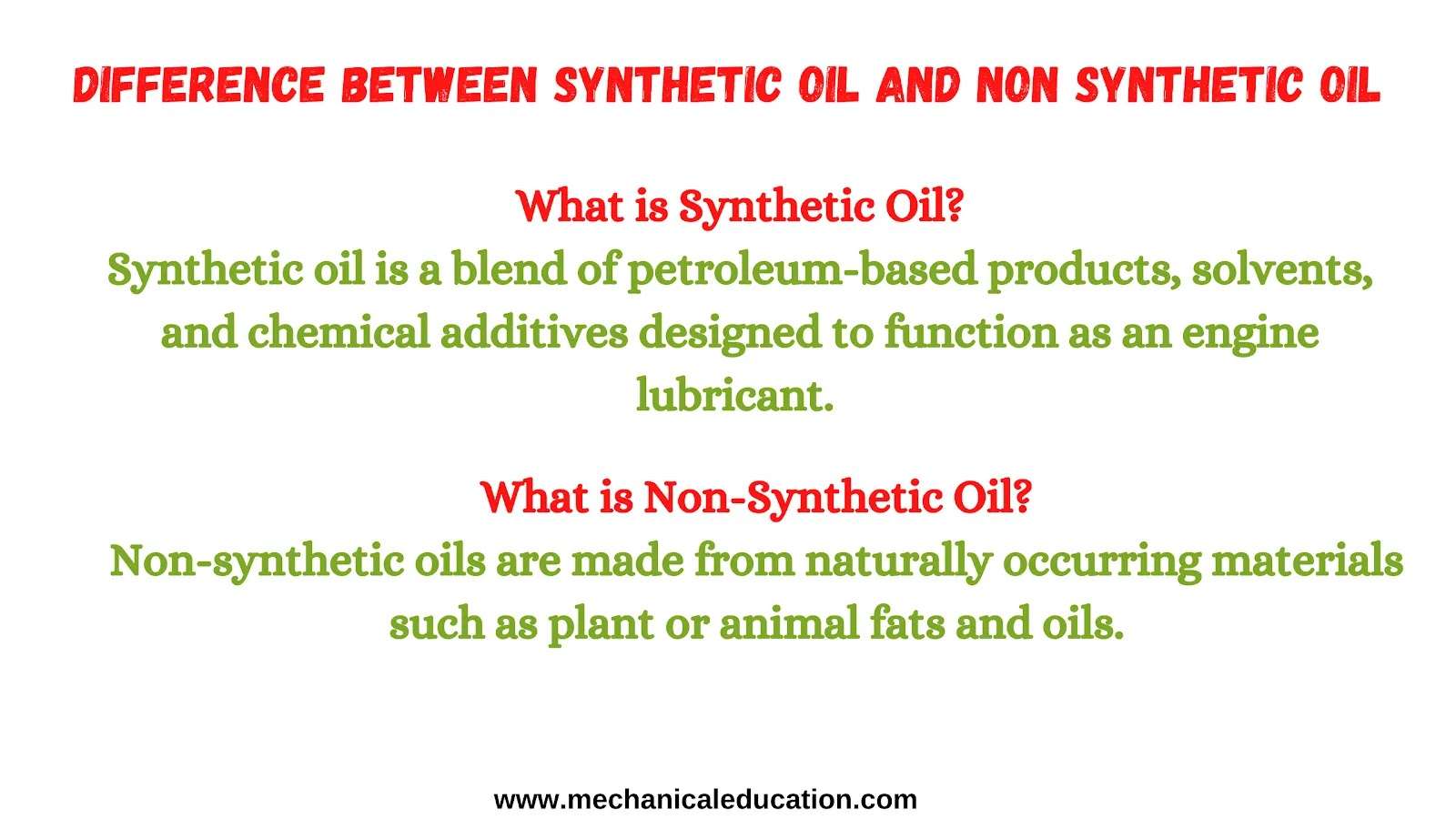Difference between Synthetic Oil and Non Synthetic Oil
Synthetic oils are made of 100% chemical compounds while non-synthetics contain some organic materials.
What is Synthetic oil?
Synthetic oil is made from petroleum, a non-renewable resource. Synthetic oil does not break down and is used in the production of chemicals, fuel, lubricants, and other materials. It can be used in an engine that has been designed for use with synthetic oil.
What is Non-Synthetic oil?
Non-Synthetic oils are refined mineral-based oils. Non-synthetic oils are renewable because they are constantly replenished by the same source that produced them.
Difference between synthetic oil and Non-Synthetic oil?
The most important difference is that synthetic oils are made in a laboratory, while non-synthetic oils are made from crude oil.
Synthetic oil is made from petroleum, natural gas, or another fossil fuel. It’s refined and processed to produce a high-quality product with a consistent level of viscosity and stability.
Non-synthetic oil is typically derived from mineral-based oils, It may also be modified with additives like anti-wear agents to prevent wear on the engine components.
Synthetic oils are typically created by chemically combining two or more hydrocarbons. Non-synthetic oils, on the other hand, are derived from crude oil, which is a mixture of many different hydrocarbons.
Synthetics are often more stable than non-synthetics and less likely to break down, whereas some synthetics can be corrosive, using agents that contain chlorine or bromine to clean surfaces.
Synthetic oil has better lubrication qualities than non-Synthetic oils.
Depending on the quality and price of the oil, there may not be much difference between synthetic and non-synthetic oils. Synthetic oils cost more because they’re made with a molecular formula that can better resist heat, pollution, stress, and shear. This means it would take longer for your car to break down or need an overhaul if you use synthetic oil instead of conventional motor oil.
The main difference between synthetic oil and non-synthetic oil is that synthetic oil is manmade. It’s made from molecules that are designed to be more durable and resistant to heat and wear.
Non-synthetic oils, such as vegetable or mineral oils, are derived from natural sources. They’re not as strong as synthetic oils, but they’re still better. Many people prefer to use non-synthetic oils because they believe they’re better for the environment and safer for their car engines.
Synthetic oils are often more stable than non-synthetic oils, meaning they don’t break down as easily and don’t form sludge as quickly. They also have a higher viscosity, which means they can flow more easily at low temperatures. Synthetic oils also typically cost more than non-synthetic oils.
There are several benefits to using synthetic oil in your car. For starters, because it’s made of chemicals, synthetic oil has a higher viscosity than non-synthetic oil. This means it can flow more easily at very low temperatures, making it ideal for use in winter.
Synthetic oils provide better protection against heat and wear than non-synthetic oils. Synthetic oil is also referred to as “synthetic motor oil.”
Synthetic oils have a high flash point meaning they don’t burn easily or explode like many non-synthetic do when exposed to heat.
Non-synthetic oil is usually the cheapest option to use because it’s mostly made up of crude oils that are not refined as synthetic and contain more impurities than synthetics.
Chemicals: Synthetic engine oils are made with chemicals such as Teflon which helps lubricate the internal combustion engines and resist wear and tear. On the other hand, non-synthetic engine oils use silicone fluids to prevent rust, corrosion, oxidation, and fuel dilution.



